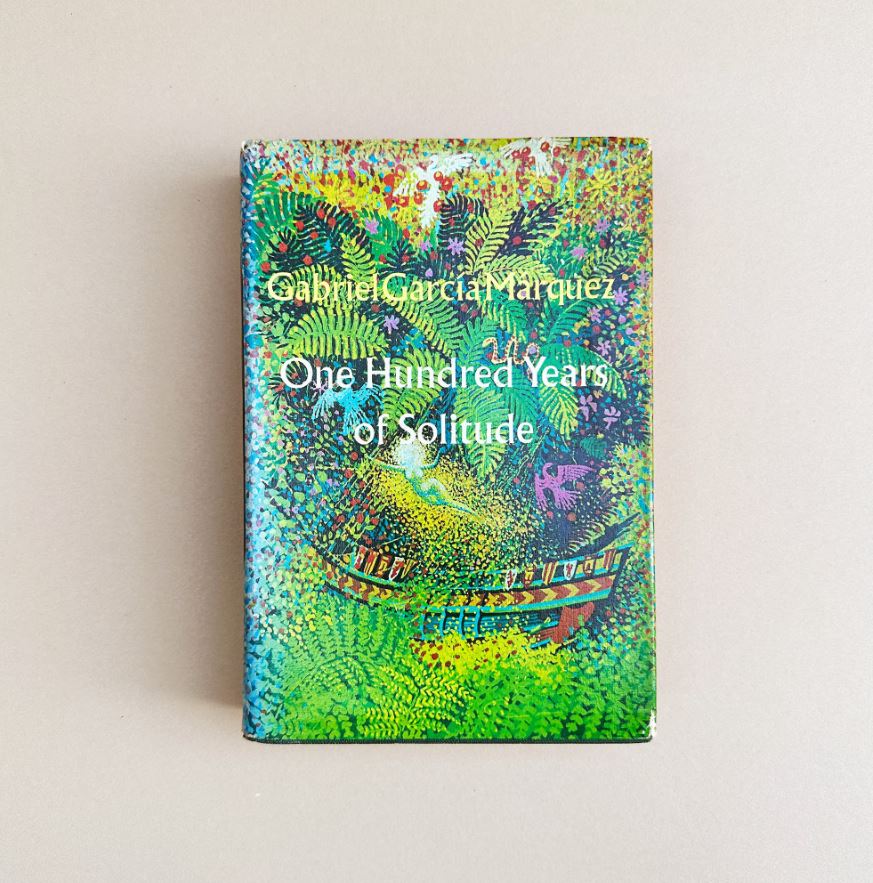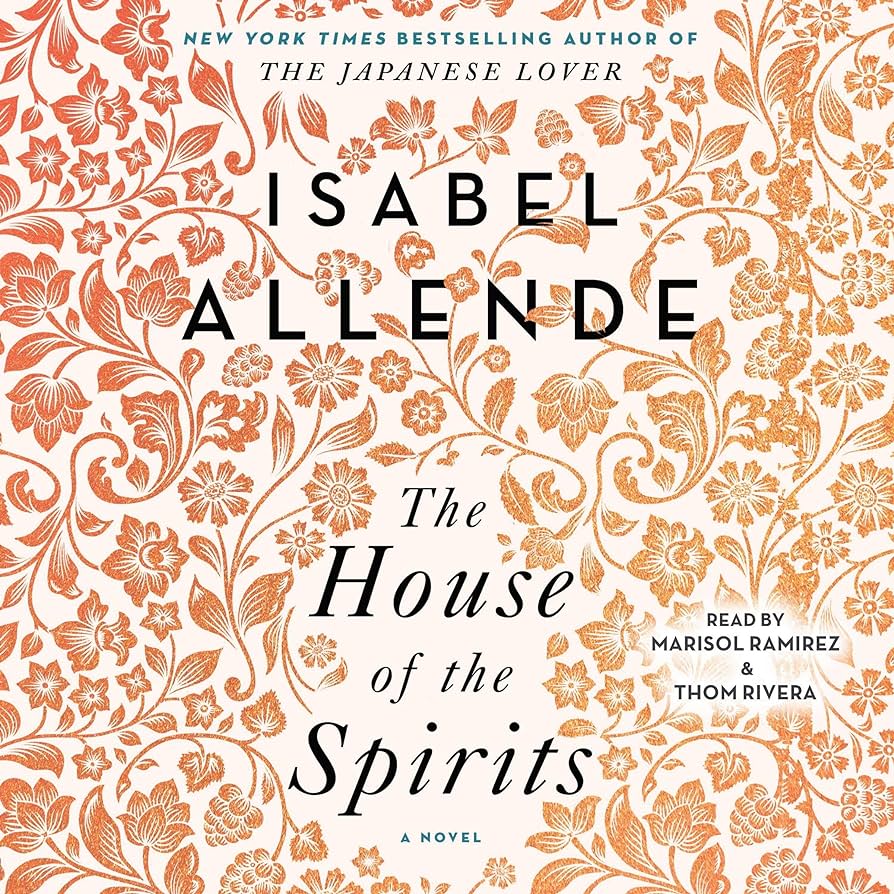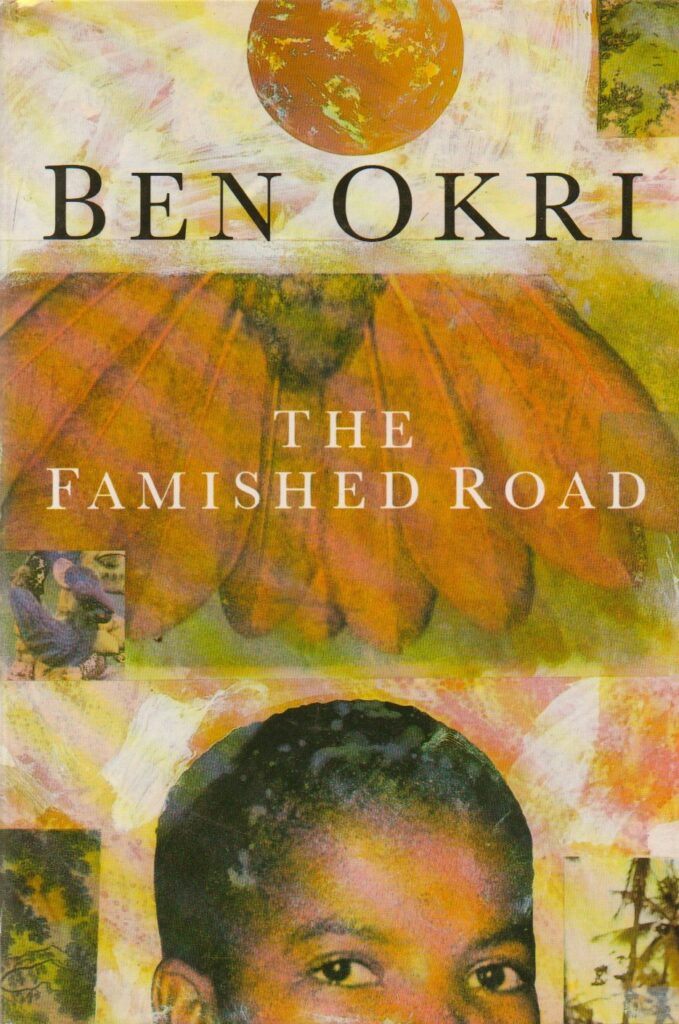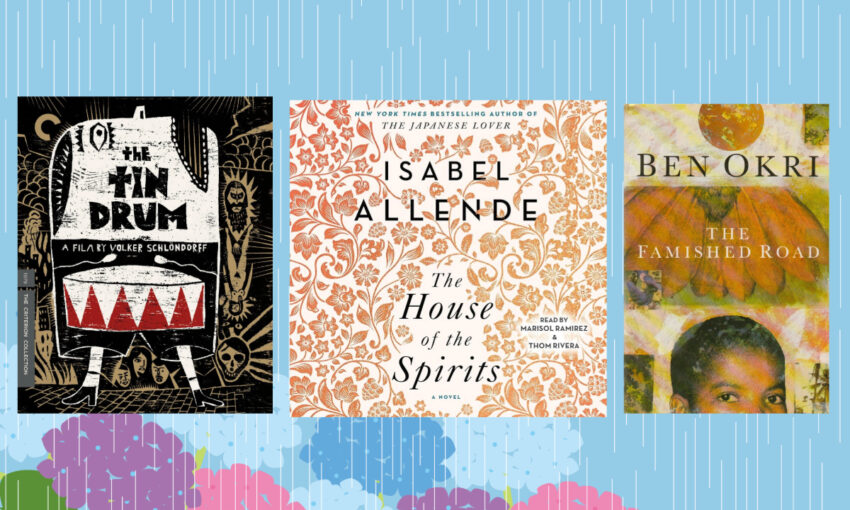Magical realism isn’t a flight from reality but rather a vibrant waltz with it. Here are 10 must-read books in magical realism in international literature.
Nestled between the familiar frontiers of realism and the boundless realms of fantasy within the literary landscape lies a shimmering oasis: magical realism. Here, the everyday intersects with the extraordinary, whispering tales of metamorphosis and memory, of history etched in cobblestones and revolutions simmering in kitchen pots. It’s a world where the fantastical isn’t merely escapist but a magnifying glass held to the familiar, revealing the hidden wonders woven into the very fabric of existence. The genre thrives on blurring the lines, inviting ghosts to linger in the corners of perception and imbuing the mundane with a touch of the impossible.
From houses that promenade under moonlit skies to butterflies raining from a tumultuous sky, the ordinary undergoes a breathtaking alchemy infused with the essence of the extraordinary. But this potent brew is far from being a mere spectacle. It invites us to grapple with the timeless questions of love and loss, identity and belonging, history, and resilience, not in sterile abstractions but within narratives where houses remember too much, iguanas metamorphose into men, and forgotten memories bloom like roses in dusty attics.
From Marquez’s labyrinthine Macondo to Allende’s haunted Tres Marías, each landscape sings a unique song, united by a shared belief in the power of storytelling to illuminate the extraordinary within the everyday. Each narrative becomes a portal, inviting you to step into a world where time bends like an accordion, forgotten histories surface in puddles, and everyday objects hum with unspoken dreams. In this article, we explore 10 must-read works of magical realism, books that once encountered promise to fundamentally affect the reader’s framework of apprehending reality. Enjoy!
- 1. The Tin Drum by Günter Grass (1959)
- 2. The Master and Margarita by Mikhail Bulgakov (1967)
- 3. One Hundred Years of Solitude by Gabriel García Márquez (1967)
- 4. Midnight's Children by Salman Rushdie (1981)
- 5. The House of the Spirits by Isabel Allende (1982)
- 6. The Unbearable Lightness of Being by Milan Kundera (1984)
- 7. Beloved by Toni Morrison (1987)
- 8. Like Water for Chocolate by Laura Esquivel (1989)
- 9. The Famished Road by Ben Okri (1991)
- 10. Exit West by Mohsin Hamid (2017)
1. The Tin Drum by Günter Grass (1959)

A world where drums communicate and fish rain from the sky – Günter Grass’ The Tin Drum isn’t your average read. Published in 1959, this German masterpiece reimagines history and reality through the warped lens of magical realism, weaving a haunting tale of war, rebellion, and a boy who chooses to remain forever three years old. Oskar Matzerath, our narrator, isn’t just any toddler. Armed with his trusty tin drum and an ear for the world’s beating pulse, he becomes a mischievous chronicler of Danzig’s tumultuous past. From the pre-war decadence of his family’s grocery store to the brutal realities of World War II, Oskar’s drumbeat echoes the city’s changing rhythms.
Grass’s prose dances with a dark whimsy, blending the mundane and the fantastical. Fish falling from the sky, a dwarf’s hypnotic performance that turns men into dogs, Oskar’s ability to shatter glass with his high-pitched scream – these elements aren’t mere embellishments; they’re integral to the novel’s exploration of war’s absurdity and the fragility of human sanity. But The Tin Drum is more than just a surreal spectacle. Oskar, with his childlike innocence and unflinching observations, exposes the hypocrisy and moral bankruptcy of those in power, his drumbeat a constant reminder of the human cost of conflict. The novel is a biting satire of German society, a scathing indictment of the Nazi regime and its impact on a nation’s soul.
2. The Master and Margarita by Mikhail Bulgakov (1967)
Moscow, sweltering under a summer sun, braces for the arrival of a most unusual visitor: Woland, a man with piercing blue eyes and an entourage of eccentric companions. Mikhail Bulgakov’s The Master and Margarita throws open the doors to a world where magic and reality waltz under the watchful gaze of the devil himself. The story unfolds across three interwoven threads: a literary world simmering with petty jealousies; the glittering, seductive nights of Moscow’s high society; and the tragic love story of the Master and Margarita – the former a brilliant writer ostracized for his controversial novel about Jesus, and the latter a woman who dares to defy everything for him.
Woland’s arrival disrupts the carefully constructed order of Moscow, Russia. Card tricks turn deadly, theatre performances become surreal spectacles, and the city’s elite find themselves facing the consequences of their hypocrisy and greed. Meanwhile, Margarita – emboldened by Woland’s promise to reunite her with the Master – sheds her skin of societal expectations and transforms into a powerful witch, hosting a devilish ball that will forever mark the Moscow night. The Master and Margarita is a multifaceted masterpiece. Cats walk upright, philosophizing and sipping vodka; a talking rooster heralds the dawn with satirical pronouncements; and the devil himself quotes Goethe and hosts literary debates. It’s a love story, a social satire, a philosophical inquiry, and a magical realist romp all rolled into one.
3. One Hundred Years of Solitude by Gabriel García Márquez (1967)

In the heart of the Colombian jungle, nestled amidst whispers of ancient myths, lies Macondo, a village born from a single man’s restless longing. Gabriel García Márquez’s One Hundred Years of Solitude unfolds within its fertile embrace, a vibrant tapestry woven with the triumphs and tragedies of the Buendía family across seven generations. José Arcadio Buendía, a man of boundless curiosity, leads his clan away from the confines of reality, seeking solace and self-discovery. Macondo rises from the verdant earth, a testament to their shared dream, its cobbled streets echoing with the rhythm of life and the murmurs of generations to come.
Each Buendía grapples with a solitude of their own – a solitude of love and loss, whispers against the wind, yearning for connection yet forever teetering on the edge. Aureliano, haunted by the phantom of a woman he never met, channels his isolation into a revolutionary quest, striving for a banana republic utopian in its dreams. His sister Amaranta weaves tapestries of unrequited love, her silent tapestry a whispered symphony of longing. Melquíades, a mysterious visitor bearing prophesies and inventions like whispers from the future casts a prophetic shadow over the family’s destiny. His cryptic parchments, held tightly by the unwavering matriarch Ursula, become silent guides through both triumph and downfall. One Hundred Years of Solitude transcends the confines of a mere family saga. It’s a poignant meditation on the burdens of history, the yearning for connection, and the enduring presence of solitude even in the heart of a bustling village.
4. Midnight’s Children by Salman Rushdie (1981)
On the stroke of midnight, August 15, 1947, India is born – and with it, a hundred and one extraordinary children. Salman Rushdie’s Midnight’s Children plunges us into a whirlwind of events, both real and imagined, weaving the tumultuous history of a newborn nation with the fantastical lives of its midnight brood. Our narrator, Saleem Sinai, born with telepathic powers and an insatiable nose for gossip, becomes our unreliable guide through this chutney of a tale. He tells of children with telekinetic abilities, twins who can metamorphose, and a boy who can levitate. Their powers, dazzling and dangerous, mirror the turbulent birth pangs of post-colonial India, a nation struggling to define itself amidst political upheaval and societal fragmentation.
Rushdie weaves history and fantasy together into a multilayered fabric of dizzying complexity. We experience the Partition’s brutal scars through Saleem’s family, torn apart by religious division. We witness the Emergency’s suffocating darkness through the children’s telepathic network, a whispered resistance against authoritarian control. Every event, be it a political rally or a whispered love affair, ripples through their shared consciousness, painting a vibrant panorama of a changing nation. Midnight’s Children is a sprawling saga of family, belonging, and the search for identity. Saleem, with his shifting memories and unreliable narration, grapples with these endless questions and wonders whether his fantastical experiences are real or delusional. His quest for answers echoes the larger anxieties of a nation searching for its own narrative, its own place within a rapidly globalizing world.
Also Read: The Best Works of Salman Rushdie and Why You Must Read Them
5. The House of the Spirits by Isabel Allende (1982)

Nestled within the turbulent heart of Chile, in the shadows of political upheaval and whispered revolution, stands Tres Marías – a grand hacienda that becomes the stage for generations of the Del Valle family in Isabel Allende’s The House of the Spirits. Clara, the spirited matriarch, defies societal expectations with her unwavering independence, her voice a whispered rebellion against the patriarchal confines of her world. Esteban Trueba, her husband, a man of rigid traditionalism, builds an empire on land and control, casting a long shadow over their tempestuous marriage. Blanca, their daughter, embraces her mother’s rebellious spirit, becoming a passionate advocate for social justice, her voice rising above the clamour of repression.
Through magical realism, Allende imbues the narrative with a touch of the fantastical. Esteban Trueba’s ghost haunts the halls of Tres Marías, a constant reminder of his choices and their consequences. Clara’s letters whisper wisdom and love from beyond the grave, guiding her granddaughter, Alba, as she navigates the turbulent waters of love and political turmoil. The House of the Spirits doubles as a family saga and a poignant reflection of Chile’s history, mirroring the nation’s struggles for freedom and identity. The rise and fall of presidents, the echoes of Pinochet’s dictatorship, and the whispers of resistance paint a vivid backdrop for the del Valle family’s dramas. Allende’s prose, vibrant and passionate, breathes life into her characters, their joys and sorrows etched in every sentence.
6. The Unbearable Lightness of Being by Milan Kundera (1984)
In Milan Kundera’s The Unbearable Lightness of Being, Prague emerges as a poignant backdrop for an existential exploration of love, betrayal, and the weight of individual choice. Amidst the shadows of war and political upheaval, four characters grapple with contrasting philosophies of life, their stories intertwining in a complex and captivating dance. Tomas, a renowned surgeon, embodies the pursuit of “lightness.” Embracing the Nietzschean concept of eternal recurrence, he sees life as a series of endless possibilities, escaping commitment and emotional burden through infidelity. Sabina, his mistress, aligns with a similar philosophy, finding liberation in artistic chaos and viewing betrayal as an extension of personal freedom.
Counterbalancing this lightness are Franz and Tereza. Franz, an intellectual consumed by the weight of “heaviness,” sees every action resonating with profound moral consequences. His relationship with Tereza, a woman defined by selfless devotion, embodies this philosophy – their love a constant tug-of-war between passionate connection and ethical responsibility. Kundera unveils the complexities of these contrasting approaches with keen wit and philosophical depth. He employs flashbacks and digressions to delve into the characters’ pasts, exposing the formative experiences that shaped their present anxieties. The novel’s sharp observations on art, love, and morality invite the reader to contemplate the eternal question: how should we live in a world devoid of inherent meaning?
7. Beloved by Toni Morrison (1987)
In Cincinnati, 1873, a haunted house whispers with shadows; the address 124 Bluestone Road bears the weight of a past that refuses to stay buried. Toni Morrison’s Beloved conjures a chilling yet poignant exploration of memory, trauma, and the enduring legacy of slavery. Sethe, a former slave marked by the brutal scar of escape, struggles to rebuild her life after fleeing Kentucky’s clutches. But freedom casts a long and twisted shadow. Her eldest daughter “Beloved”, born on the road to liberty, arrives not as a blessing but as a ghost, a manifestation of the unspeakable horrors Sethe endured.
Beloved, a swirling presence of insatiable need, drains Sethe’s life force, both literally and metaphorically. Denver, Sethe’s only surviving daughter, emerges from shadows of her own, trapped by the spectre of the sister she never knew. Paul D, a friend from their enslaved past, arrives offering solace and pragmatism, his presence a lifeline back to the living world. Morrison’s prose is at once lyrical and raw, weaving a tapestry of memory and pain. Flashbacks erupt like thunder, revealing the depths of Sethe’s suffering on Sweet Home, the horrific journey north, and the desperate act of killing that haunts her present. The ghosts of the Middle Passage, the ship from Africa, moan through the narrative – their whispers a chilling reminder of the brutality that birthed Beloved.
8. Like Water for Chocolate by Laura Esquivel (1989)
Beneath the sun-drenched skies of a Mexican hacienda, emotions simmer as fiercely as the onions in the kitchen. Laura Esquivel’s Like Water for Chocolate transcends the realms of mere culinary chronicles, transforming the domestic space into a crucible of forbidden love, societal defiance, and vibrant storytelling. Tita, our passionate protagonist, finds herself bound by an ancient family decree – forever chained to the hearth, denied the joy of marriage and motherhood. Yet her indomitable spirit refuses to be contained. Her yearning for Pedro, the handsome rancher who sets her heart ablaze, finds a unique outlet in the kitchen, where every dish becomes a silent symphony of rebellion.
Tita’s tyrannical mother Gertrudis wields tradition like a chef’s knife, her fear of losing control casting a long shadow over the kitchen. Pedro, caught in the crossfire of duty and desire, dances a tango of longing and resignation. And Rosaura, Tita’s sister, becomes an unwitting pawn in the family’s game, her loveless marriage a stark contrast to Tita’s simmering passion. Esquivel’s writing hums with poetic lyricism, painting each ingredient as a brushstroke on the canvas of Tita’s unspoken desires. Fiery chiles ignite clandestine passions, creamy meringues whisper forbidden confessions, and a bittersweet chocolate cake becomes a poignant ode to unfulfilled dreams. Like Water for Chocolate is a feast for the senses, a literary tour de force that tantalizes the taste buds and simultaneously stirs the soul.
9. The Famished Road by Ben Okri (1991)

Ben Okri’s The Famished Road draws us into the vibrant myth-infused realm of the Nigerian village of Ajuwaya, where the young Azaro’s odyssey for self-discovery intersects with the tumultuous rebirth of a nation. Emerging into a world on the brink of chaos, Azaro is born amidst the pangs of famine. Tribal tensions simmer, colonial scars pulse with pain, and whispers of a “spirit child” destined to mend the rifts between worlds echo through the streets. Azaro, marked by an insatiable hunger and the uncanny ability to see beyond the veil, embodies this fragile hope. He encounters spirits masquerading as humans, navigates the perils of a haunted forest, and grapples with the burden of his otherworldly gifts.
Okri’s novel deftly captures the essence of a nation both vibrant and fractured, breathing life into the parched landscape, the pulsating city streets, and the whispering spirits. His narrative transcends a mere coming-of-age story, evolving into a potent allegory for the universal quest for identity within a world confronting its past and forging its future. Azaro’s yearning mirrors Nigeria’s own struggle for unity and healing, his hunger a metaphor for the nation’s insatiable desire for wholeness. Rather than being any straightforward linear tale, The Famished Road is a swirling vortex of time and perspective, reflecting the cyclical nature of life and the interconnectedness of all things.
10. Exit West by Mohsin Hamid (2017)
War drums beat a relentless rhythm in an unnamed city – Mohsin Hamid’s Exit West throws us into this urban crucible, where love and displacement pirouette amidst the shadows of conflict. Saeed and Nadia, two souls caught in the maelstrom, find their lives twisted by the sudden appearance of magical black doors – portals to unknown destinations. Driven by the escalating violence and a yearning for a haven, the couple embarks on a surreal odyssey, stepping through these enigmatic doorways into a kaleidoscope of foreign lands, from Greece to England to America. From refugee camps teeming with whispered anxieties to opulent villas humming with unspoken desires, each land offers fleeting solace and harsh realities in equal measure.
The book navigates the emotional landscape of displacement with tenderness and brutal honesty, capturing the ache of leaving behind everything familiar and the disorienting thrill of new beginnings. Saeed and Nadia grapple with the loss of identity, the weight of cultural clashes, and the ever-present question of belonging. More than a chronicle of migration, Exit West becomes a poignant exploration of love’s transformative power in the face of upheaval. Amidst the chaos, Saeed and Nadia cling to each other, their bond evolving and shifting as they adapt to alien landscapes and their own changing selves. Their love becomes a lifeline, a flickering beacon in the encroaching darkness of uncertainty. Exit West isn’t afraid to weave humor into its heartbreaking tale. Hamid masterfully employs satire and absurdist elements to critique the human response to displacement, highlighting the hypocrisy and prejudice that often mar the welcoming hand of foreign shores.

